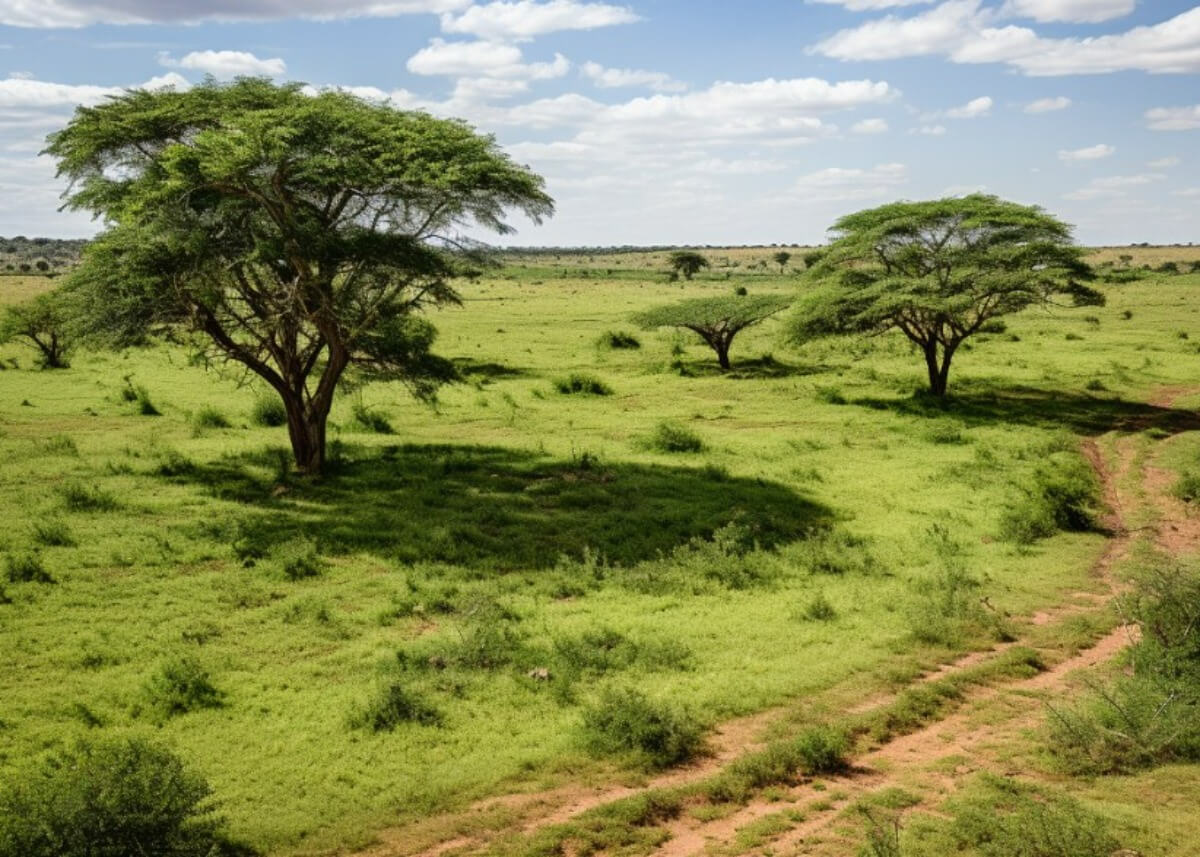Property investment is a proven way of creating wealth, whether as long-term passive income and capital growth or as short-term gains from buying and selling. However, most investors overlook the less glossy and perhaps one of the best forms of long-term investing, which is land banking. So, what is it, and is it a worthy investment?
Land banking is one of the oldest forms of real estate investments. Property developers are in the business of creating wealth which is often achieved when the property appreciates. In the case of land, you can wait for its value to increase and then sell it or obtain planning permission from relevant authorities to develop it and then sell it at a profit.
Table of Contents
What Is Land Banking?
Land banking is a buy-and-hold real estate investment scheme that entails purchasing large pieces of undeveloped land for future sale or development. It involves saving money in a physical and fixed asset instead of putting it in a low-interest savings account or placing it in the highly volatile stock market.
Is Land Banking a Good Investment?
When investors buy land on the outskirts of a major town or city, they hope that development will reach the location after several years. They are buying land at low prices today with plans to resell when its value spikes as the city expands. These are some of the major benefits of land banking;
High Demand for Land Leads to Value Appreciation
Land is finite since no one has the ability to make more of it. This means its supply reduces over time as demand rises, leading to value appreciation. If you purchase land today and sell it after a decade, you will make a huge profit.
The major don’ts of land banking is never to be in a hurry to sell the property. Before investing, it is also good to assess its future development. Knowing the history of an area will help you find land in a location that is on the path of growth, especially in places with upcoming significant infrastructural developments.
Cheap Investment Portfolio
Land banking requires lower financial input compared to other real estate properties. It is an ideal option for new investors. However, you must have a plan after buying the land. Will you divide it into pieces to sell to multiple investors or develop a residential/commercial property? It is also crucial to know the legal processes involved.

No Maintenance Needed
Land costs very little to maintain, unlike having houses, apartment buildings, or commercial properties. There are no rental income tax, fixing broken things, or dealing with endless tenant and contractor problems.
No Theft or Destruction/Regular Cashflow
When you purchase the property today and return to it after a decade, the condition will not have changed, but the value will have increased. Instead of letting the land stay idle during the holding period, you can lease the property to a farmer if the land is arable. You can also do personal short-term projects to ensure continuous cashflow.
READ ALSO: Common Land Investment Myths You Will Be Glad Aren’t True
What Are the Disadvantages of Land Banking?
Like any other investment, land banking has risks. The obvious disadvantages of this investment strategy are why many investors fail to consider it a viable wealth-creating tool.
No Immediate Return
Having to wait for years to make a profit is the biggest drawback of this investment. Unlike rental income, land banking does not give you immediate return. It may not be an excellent wealth-creating option if you live on a large budget or do not have the patience to wait.
Returns Uncertainty
This is one of the largest risks of this investment since not all land guarantees huge returns in the long term. The biggest challenge for a real estate investor is to buy land in a location that guarantees future growth to ensure exponential profits.
Financing Problems
Securing capital from financial institutions can be challenging if you do not have enough financing to purchase land. Lenders consider it to be a risky venture since returns are based on non-guaranteed land appreciation in the future.

Which Investment Is Best in Kenya?
The best investment varies and depends on factors like risk tolerance, amount of capital, investment duration, government regulations, and market understanding. Top investment options in Kenya include real estate, stock market, money market funds, and government bonds.
READ ALSO: 6 Ways to Make Money from Vacant Land
Why Invest in Land in Kenya?
The reason why buying land is a great investment in Kenya is that it appreciates in value. The country’s economy has been doing well, and the real estate market continues to thrive. Emerging towns and expanding cities also promise exponential returns for property developers who invest in nearby properties.
Land banking in Kenya should be done with a clear understanding of the market. You can consult a financial professional and legal advisor before getting into the business.
In Conclusion
Land banking has existed for centuries and is proven to be an ideal long-term investment option if done correctly. You can learn from some of the world’s prominent savvy investors like John Jacob Astor, who owned the now-developed Manhattan. For the best outcome, do proper research to understand the real estate development trends.
READ ALSO: A Beginner’s Guide to Buying Land in Kenya
Buying land is an important investment that must be done with the proper knowledge. Reasons for purchase, like residential/commercial investments or land banking, will determine the location and price.



